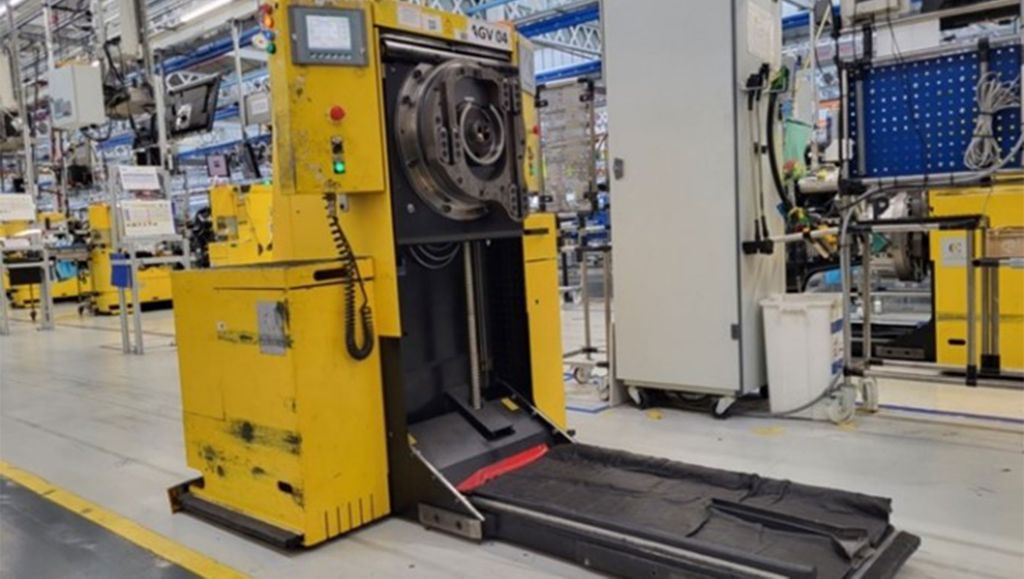Volvo Group implements a new Internet of Things (IoT) network to make factories smarter


Volvo Group produces engines for different purposes, for instance for trucks , industrial power systems and boats, and the manufacturing process for these large, heavy engines relies on utilizing Autonomous Guided Vehicles (AGV).
AGVs enable more flexibility for the entire production chain,compared to a more traditional fixed production chain, but it also creates challenges in the manufacturing process. A 24V battery powers the AGVs, but when the voltage goes under 22V, the AGVs stop and simply block the production chain; stops which result in production loss of approximately two engines per week.
To proactively monitor the health of the AGVs and prevent their shutdown, the IoT team at Volvo Group Digital & IT, supporting the factory in Lyon, envisioned a wireless system for predictive maintenance. The team initially looked at WIFI technology, but the WIFI 2.4GHz band was already being used for critical processes in the production line. Faced with this challenge, the IoT teamlooked toward LoRaWAN, a LPWAN protocol designed to connect battery-operated 'things' to the internet for powering the large fleet of AGVs. LoRaWAN is ideally suited to the manufacturing process as it provides long-range capability, good resistance to interferences, and a secured and flexible network architecture.
The team also installed their own LoRaWAN sensor on every AVG to receive periodic voltage data of the battery levels (<23V) or battery failures. With the new system, the maintenance team receives regular notifications, providing more time to move the AVGs to the charge point, without blocking the production line. They can also organize interventions in cases of battery failure.
"Implementing a radio infrastructure in our factory was a challenge, and we wanted to have a LoRaWAN network connected directly to our secure Ethernet network to avoid any cloud dependence. So, we have selected a Multitech industrial grade LoRa Gateway, with some edge computing capabilities and robust cybersecurity features to successfully qualify it through an complete IT audit”, said Julien Bertolini, Principal Solution Architect IoTat Volvo Group Digital & IT.
The complete system for predictive maintenance now includes a LoRaWaN sensor installed on every AVG, a private LoRaWAN network, the maintenance platform on PTC Thingworx with its mobile application, and some screens dispersed throughout the factory to display the real-time status of any AVG.
The connected factory, with its LoRaWAN, has opened up for new exciting opportunities for Volvo Group in Lyon: new sensors have been added for additional purposes, such as a temperature and humidity sensor designated for painting to improve the rendering quality and pressure difference sensors for monitoring filter clogging.
Thanks to recent advancements in cellular and IoT technologies, manufacturers can now unleash their network to take advantage of various performance and business benefits, such as improved operational cost, speed, and efficiency.